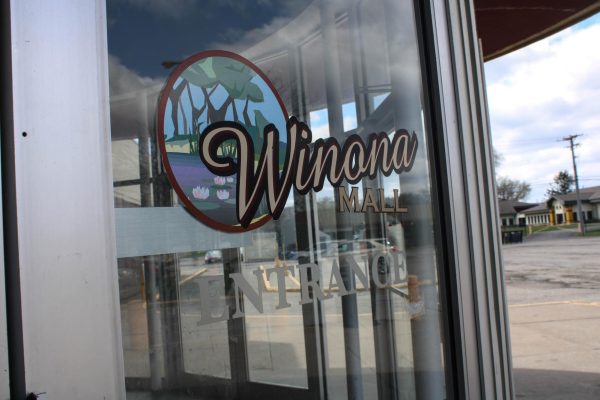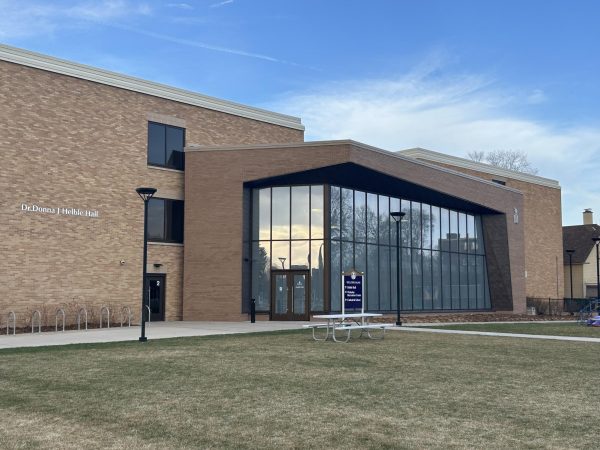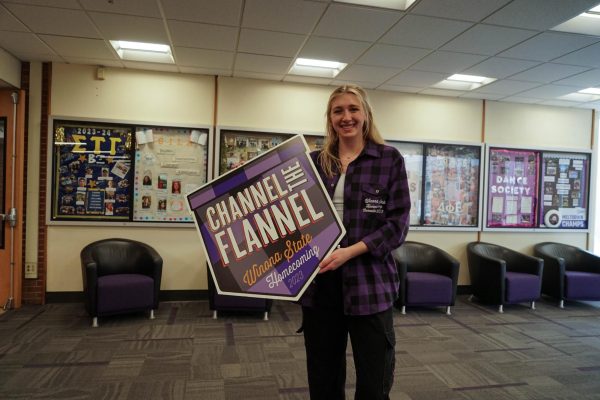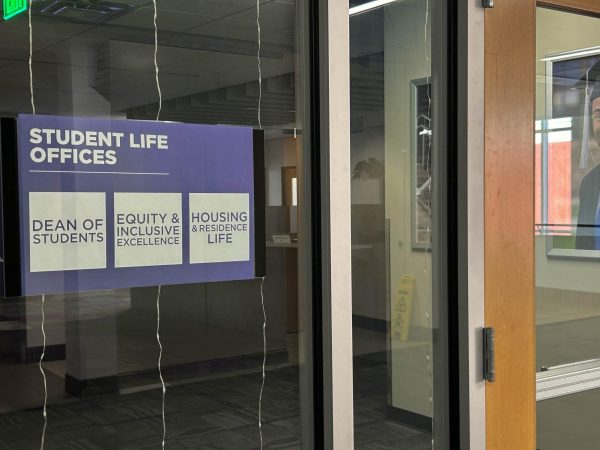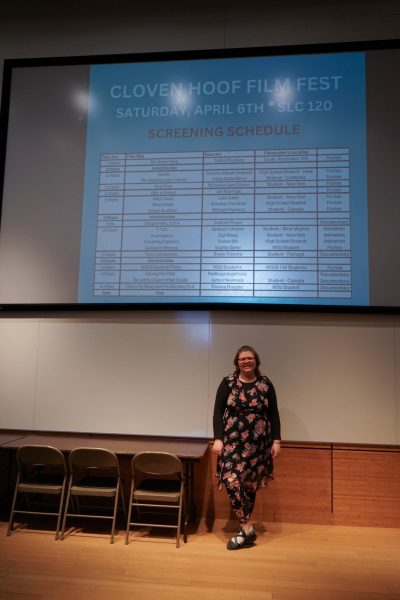WSU shares updates in second spring COVID-19 forum
February 24, 2021
Winona State University held its second COVID-19 update forum on Feb. 18 from 2 to 3:30 p.m. via Zoom.
Scott Ellinghuysen, the university’s vice president of finance, opened the all-university forum accompanied by PowerPoint slides.
Speakers at the forum included: President Scott Olson, Health Services Director Connie Kamara, Winona State-Rochester Associate Vice President Jeanine Gangeness, Provost of Academic Affairs Darrell Newton, Director of Housing and Residence Life Paula Scheevel, Vice President of Student Life and Development Denise McDowell and Human Resources Director Lori Reed.
Kamara commented on the university’s low COVID case numbers on campus, but also noted there are currently more students in quarantine than isolation, which the university hopes will reverse.
Kamara also discussed several COVID variants, including the U.K. and Brazil variant, which are both present in Minnesota.
Kamara said 40 cases of the U.K. COVID variant have been confirmed in Minnesota, as well as two cases of the Brazil variant.
In discussing when Winona County would receive the vaccine, Kamara broke down what phase’s individuals would receive the vaccine in.
Phase 1A includes healthcare workers; Phase 1B includes essential workers and adults over the age of 75; Phase 1C includes adults between the ages of 65-74 and people aged 16-64 who have a high-risk medical condition; Phase 2 will include other high-risk populations and Phase 3 will include the general population.
However, even those who belong to phases that are eligible for the vaccine will likely have to wait, since vaccine doses are “in limited supply and being coordinated by County [and] local public health agencies,” according to Kamara.
The vaccine will be delivered in two shots, with three to four weeks between each shot depending on if you receive the Pfizer or Moderna vaccine.
Kamara also said students will be notified of when they can receive the vaccine by campus officials as well as Health and Wellness Services via email, which will likely be during Phase 2 unless individuals are included in earlier phases for various reasons.
Winona State is not requiring students, staff or faculty to be vaccinated at this time.
However, Kamara urged those in attendance at the forum to get vaccinated as soon as they can.
“Please know that a vaccine for anyone in our community is a vaccine for everyone in our community,” Kamara said.
Next, Gangeness talked about how Winona State’s Rochester campus had been handling their own COVID vaccinations, as the Rochester campus lies within Olmsted County, an area which already received some doses of the vaccine.
Gangeness said Winona State-Rochester was contacted by Olmsted County Public Health the morning of Feb. 4 to alert them that six vaccination clinics would be set up on Feb. 5.
Gangeness also discussed the university’s newest mental health initiative, which Kate Noelke, director of fitness and wellness at Winona State, said came to be due to the mental health challenges that were heightened by, or arose during, the pandemic.
“More people in our communities are experiencing long-lasting, more intense and more challenges to their mental health during the COVID-19 pandemic,” Noelke said. “We at Winona State acknowledge the stress and even burnout being experienced by our campus and employees.”
Gangeness then addressed the initiatives directed at students, including the “Pod Squad” and the Great Warrior Change Up series.
The Great Warrior Change Up video series is shared on Winona State’s social media accounts and other university platforms, encouraging Warriors to “change up” their routines in order to “have fun, make connections, discover new passions and simply shake up the monotony a little.”
Initiatives for employees include virtual engagement kits that do not include Zoom, supervisor groups and a “grassroots mental health campaign” that will aim to increase peer-to-peer networking.
Newton said Winona State will return to “standard operations” in the fall of 2021, “as much as possible.” This could include more face-to-face classes, but the university will continue to offer online class options for students and will still follow Minnesota Department of Health and CDC guidelines.
The university will prioritize maintaining activities and courses that require in-person gatherings, such as those requiring performances, laboratory use and clinical experience.
However, Newton also said the university will be developing a physical distancing plan and further specialized plans for courses that “do not permit” physical distancing.
Newton gave examples of what classroom capacities could look like in the fall, including study areas allowing maximum ½ capacity, classrooms allowing 1/3 capacity and auditoriums allowing 1/5 capacity.
Newton also discussed the “We Are Here for You” survey that will roll out to university employees during the spring.
The survey, developed by Gangeness, Teaching, Learning and Technology Director Ken Graetz and Institutional Planning, Assessment and Research Director Eri Fujieda, will aim to learn employees’ current feelings about health and safety, including mental health concerns, attitudes toward the vaccine and towards working face-to-face again versus working remotely.
Newton said the results from the survey will further inform discussions and decisions made on the university’s course delivery methods and employee support.
McDowell discussed the university’s reported COVID noncompliance violations from Aug. 24, 2020 through Feb. 9, 2021, which included 51 first offenders of not wearing a face covering while also not social distancing on campus.
The university has only had three students who were third offenders, thus receiving disciplinary probation or suspension.
The forum also held a Q&A section, which the university gathered questions for prior to the forum via email.
Near the end of the forum, Ellinghuysen answered a question about when and how Winona State’s Children Center would accommodate for COVID and when it would reopen.
Ellinghuysen said the Children Center is currently operating for all Winona State staff, faculty and students who decided to keep their children enrolled at the Center, with COVID restrictions and protocols now in place.
Scheevel then discussed housing on campus and updates, including how meal plans will continue to be available during the week of March 7-11, formerly known as Spring Break, which was cancelled due to COVID concerns.
University housing will continue not allowing visitors from off campus, out of town or those who are minors. Residence halls will close for the school year on Friday, May 7 at 5 p.m.
There will continue to be university housing available to students in the 2021-22 school year.





























































